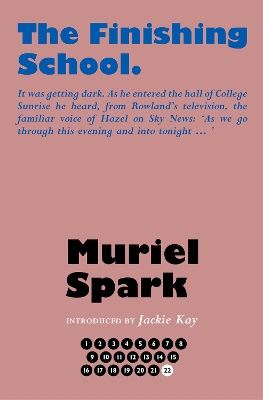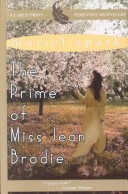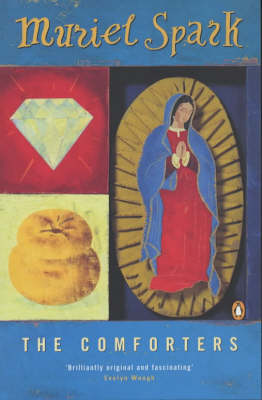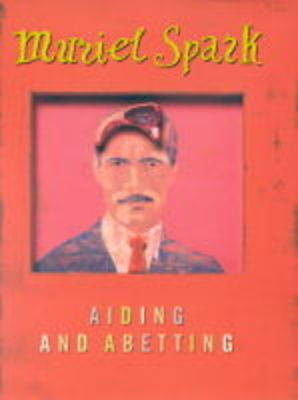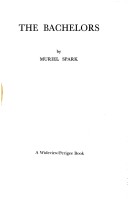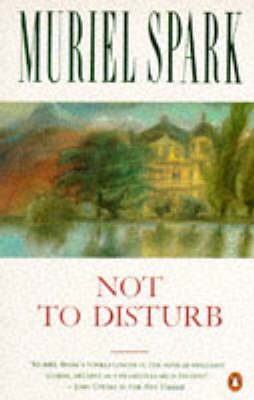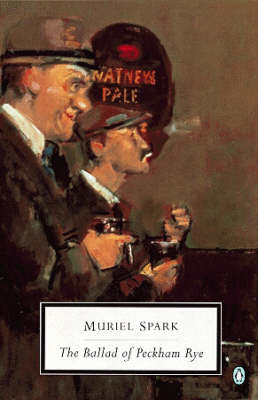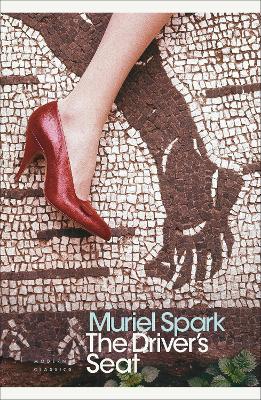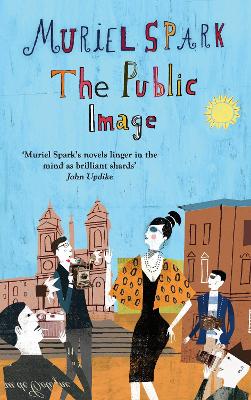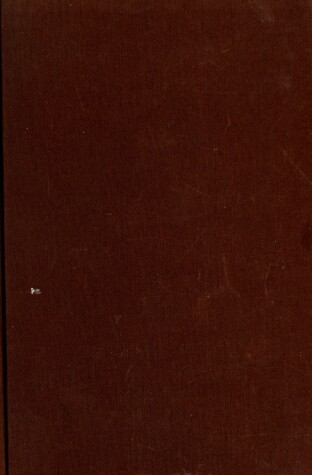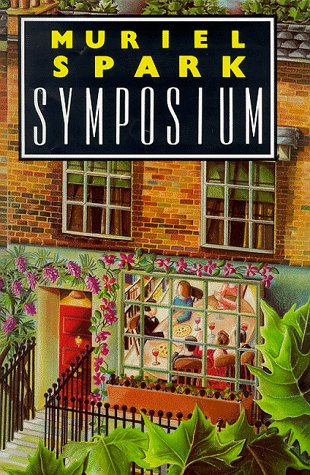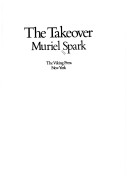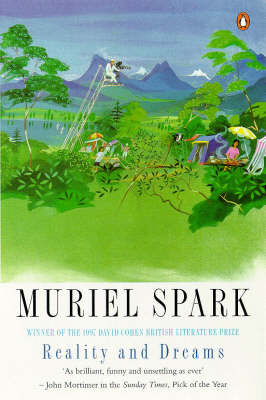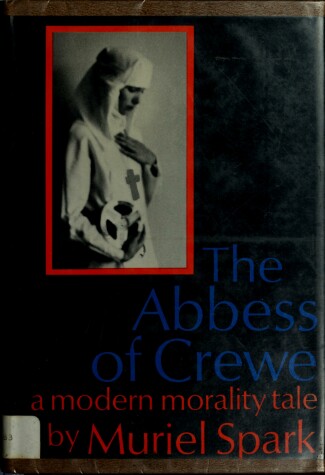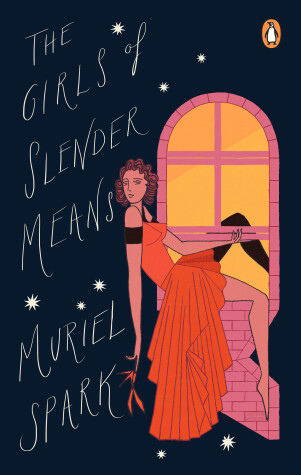The Collected Muriel Spark Novels
22 total works
Often described as the perfect partner to The Prime of Miss Jean Brodie, Spark’s last novel is set in Switzerland where Rowland and his wife Nina run a finishing school. Murderous jealousy soon rears its head when a precocious young student shows promise in her writing career. This is ‘Spark at her sharpest, her purest and her most merciful’ – Ali Smith.
This is one of the 22 novels written by Muriel Spark in her lifetime. All were published by Polygon in hardback Centenary Editions between November 2017 and September 2018.
A funny and clever novel about art and reality and the way they imitate each other, from the author of The Prime of Miss Jean Brodie. With an introduction by Mark Lawson.
Would-be novelist Fleur Talbot works for the snooty, irascible Sir Quentin Oliver at the Autobiographical Association, whose members are all at work on their memoirs. When her employer gets his hands on Fleur's novel-in-progress, mayhem ensues as its scenes begin coming true... Spark's inimitable style make this literary joyride thoroughly appealing.
'The most gloriously entertaining novel since The Prime of Miss Jean Brodie.' AN Wilson, Spectator
'I read this book in a delirium of delight ... robust and full-bodied, a wise and mature work, and a brilliantly mischievous one.' New York Times Book Review
'It's easy to see why Waugh admired The Bachelors. On one level, it is a blithely carnivorous satire in the Waugh mould. The bachelors of the title - almost the only men we meet in the narrative - are the thirty-something male barristers, teachers, journalists and museum attendants of a small patch of West London. They lead inturned, doddery, superannuated lives, pottering between grocers, coffee-houses, bedsits and the houses of their mothers and aunts. But the comedy here is serious in a way that Waugh's satanically energetic comedies of misery rarely are . . . comedies of English manners have seldom been darker' Daily Telegraph
'My admiration for Spark's contribution to world literature knows no bounds. She was peerless, sparkling, inventive and intelligent - the creme de la creme' Ian Rankin
'Muriel Spark's novels linger in the mind as brilliant shards, decisive as a smashed glass is decisive' John Updike, New Yorker
Behind the high walls of a mansion in Geneva a night of sinister revelry is about to begin . . .
In the staff quarters, the servants led by the cool, unflappable butler are preparing for the downfall of the Baron and Baroness. Meanwhile in the attic, the Baron's invalid brother awaits his fate as an unwitting pawn in their devious plans. And in the library, the Baron, the Baroness and their young handsome secretary are locked in a mysterious, heated discussion.
As the macabre scenario plays itself out, a world of grim humour and gruesome possibilities unfolds . . .
Described as 'a metaphysical shocker' at the time of its release, Muriel Sparks' The Driver's Seat is a taut psychological thriller, published with an introduction by John Lanchester in Penguin Modern Classics.
Lise has been driven to distraction by working in the same accountants' office for sixteen years. So she leaves everything behind her, transforms herself into a laughing, garishly-dressed temptress and flies abroad on the holiday of a lifetime. But her search for adventure, sex and new experiences takes on a far darker significance as she heads on a journey of self-destruction. Infinity and eternity attend Lise's last terrible day in an unnamed southern city, as she meets her fate. One of six novels to be nominated for a 'Lost Man Booker Prize', The Driver's Seat was adapted into a 1974 film, Identikit, starring Elizabeth Taylor.
Muriel Spark (1918 - 2006) wrote poetry, stories, and biographies as well as a remarkable series of novels, including The Prime of Miss Jean Brodie (1961), The Mandelbaum Gate (1965) which received the James Tait Black Prize, and The Public Image (1968) and Loitering with Intent (1981), both of which were shortlisted for the Booker Prize. Spark was awarded the T.S. Eliot Award for poetry in 1992, and the David Cohen Prize for literature in 1997.
If you enjoyed The Driver's Seat, you might like Spark's The Prime of Miss Jean Brodie, also available in Penguin Modern Classics.
'An extraordinary tour de force, a crime story turned inside out'
David Lodge
'Her spiny and treacherous masterpiece'
New Yorker
During World War II, Elsa and Paul were involved in secret propaganda work in England. It is now 1973 and they are living in New York. Elsa is
convinced that a German ex-POW - and former lover - who has appeared in New York, may be planning to kill them. And what's more, her
shadow is pointing in the wrong direction: to the East.
This is one of the 22 novels written by Muriel Spark in her lifetime. All are being published by Polygon in hardback Centenary Editions between
November 2017 and September 2018.
Described by Gore Vidal as 'a novel written at the top of her form and so unique', Reality and Dreams concerns the delirious, egocentric film
director Tom Richards, who is recovering from injuries sustained while falling off a crane on set. His obsessive passion to make a film about a
simple young woman sucks his wife, daughters, lovers and friends into a maelstrom of destruction.
This is one of the 22 novels written by Muriel Spark in her lifetime. All are being published by Polygon in hardback Centenary Editions between
November 2017 and September 2018.
The Abbess of Crewe displays the best of Sparkian satire, placing her at the heart of a great literary tradition alongside Waugh and Trollope, Wilde and Wodehouse. It demands rediscovery.
The Abbess of Crewe is Muriel Spark's razor sharp, wickedly humorous and surreal satire of a real life political scandal - reimagined within the claustrophobic walls of a convent. A steely, Machiavellian nun, secret surveillance, corruption, cloak-and-dagger plotting, rivalries and a rigged election all send the wonderful cast of characters into disarray as a chain of events unfold that become weirder and weirder.
'It never really occurred to her that literary men, if they like women at all, do not want literary women but girls.'
The May of Teck Club 'exists for the Pecuniary Convenience and Social Protection of Ladies of Slender Means below the age of Thirty Years'. Nevertheless, and though there is a war on, they find the time between elocution lessons to jostle one another over suitors (some more suitable than others) and a single Schiaparelli gown. But can a love of literature, fine clothes and amorous young men save these young ladies from the horrors of the real world?
'Unsettling and exhilarating' William Boyd, Daily Telegraph
'An enduring genius' Guardian
